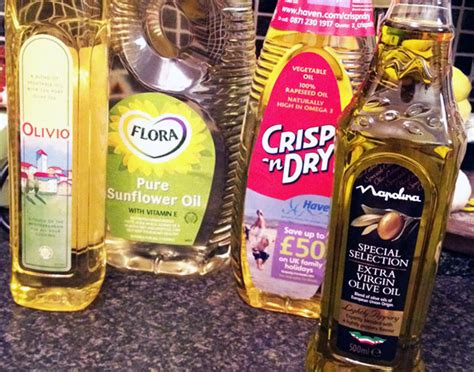In today’s culinary landscape, cooking oils play a pivotal role, not just as ingredients but as bearers of flavor and health. However, the average consumer often finds themselves tangled in a web of confusing choices. With labels like ‘extra virgin’, ‘cold-pressed’, and ‘organic’ being thrown around, how does one determine the best option? The process of selecting the right cooking oil entails understanding its smoke point, flavor profile, and authenticity.
One crucial consideration when choosing a cooking oil is the **smoke point**. The smoke point is the temperature at which an oil starts to produce visible smoke, leading to the breakdown of fats and release of harmful compounds such as acrolein. For high-heat applications like frying, oils with higher smoke points, such as avocado oil or refined sunflower oil, are recommended. Conversely, for salad dressings and low-heat applications, extra virgin olive oil (EVOO) or cold-pressed oils with distinctive flavors can be more appropriate. However, be wary of the prevalent myth that cooking oils, especially EVOO, are universally suitable for all cooking needs.
Authenticity issues plague the olive oil market. Numerous reports have surfaced indicating that what is sold as ‘extra virgin olive oil’ may often be adulterated with cheaper oils or derived by dubious means. **California**’s olive oil industry, due to stringent regulations, boasts higher authenticity compared to many imported varieties, including those labeled as 100% pure from regions like Italy and Spain. Despite this, the labeling can still be misleading. Opting for single-source, small batch olive oils can ensure that you get what you pay for, though this may come at a higher cost.
Beyond olive oil, the focus shifts to other oils like canola (rapeseed) oil. Canola oil, often heralded for its high smoke point and neutral flavor, is also subjected to rigorous criticisms. Recent studies, like those published by ÖkoTest in Germany, highlight concerns over contamination with mineral oils, likely introduced during processing or handling. These findings provoke a thorough reassessment of even the most benign-seeming products. Interestingly, the contamination issue isn’t just confined to olive oils but extends to a variety of so-called healthier seed oils.
The debate over **processed oils** often leads to an inevitable conversation about industrial versus natural oils. Many consumers are unaware that generic ‘vegetable oil’ may comprise a cocktail of palm, soybean, or even cottonseed oil, all of which undergo significant processing. There has been a growing backlash against these oils, primarily on their *potential health risks*. For instance, large manufacturers have pushed cheaper, highly processed oils under the guise of being ‘healthy’, placing profit margins over consumer well-being.
One has to evaluate the health implications holistically. The consensus among health experts remains that less processed, more natural oils should be preferred. Yet, it’s not merely about avoiding harmful products but incorporating beneficial ones. Alternatives like **butter** and **ghee** have started gaining traction once more, given their stability under heat and rich flavors. Historical dietary patterns often lend credence to their nutritional value, despite popular demonization in the mid-20th century, driven by industrial propaganda favoring vegetable oils.
In conclusion, while the perfect cooking oil remains elusive, understanding the basics can help make better choices. Pay heed to the smoke point for various cooking needs, and scrutinize the labeling for authenticity. Move towards minimally processed oils and consider diversifying your kitchen oil portfolio. An informed decision not only enhances your culinary experience but significantly bolsters your health. Ultimately, it’s about balancing health aspects without sacrificing the joy of cooking.


Leave a Reply